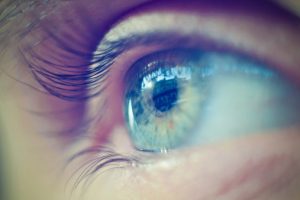
Syphilis can come in several stages: primary, secondary, and latent and late stage. In the primary stage, a single chancre is present, but other sores may be present as well. If treatment begins in the primary stage, the chancres will last between three to six weeks. Without treatment, syphilis will develop into the other stages.
As mentioned, there can be complications associated with untreated or unsuccessfully treated syphilis. One of those complications is known as ocular syphilis, which stems from neurosyphilis, affecting and invading the nervous system. In ocular syphilis, there is a potential for blindness to occur.
Cluster of ocular syphilis cases across the Northwest and California: CDC
In later 2015, there was an influx of cases of ocular syphilis seen across the Northwest and California. The Centers for Disease Control and Prevention (CDC) reported that many of these cases ended up in blindness.
Syphilis can go symptomless for quite some time, making diagnosis and treatment difficult. Unfortunately, if it is not properly treated, that is when complications can arise, including ocular syphilis.
In the CDC report, four King County, Washington men experienced various degrees of vision loss and inflammation. Three of the men had concurrent HIV-infections, and all the men had sex with other men. The men received treatment and were cured, but after five months two of the men became legally blind. Due to the cases occurring closely together, an advisory was sent out along the West Coast area.
An additional investigation in San Francisco uncovered eight ocular syphilis cases primarily among men who had sex with other men, and some of the men were HIV-infected. Vision improved once again after treatment, but one of the men lost his vision after three months.
Generally, syphilis is curable, but treatment is far more complicating when it comes to treating ocular syphilis. It is difficult for antibiotics to quickly reach the eye. Furthermore, ocular syphilis is quite rare. Visual symptoms related to syphilis may often be overlooked, delaying the treatment.
Ocular syphilis prevention tips
Furthermore, doctors must become more aware of ocular syphilis as well in order to provide the best treatment for their patients. This is what the CDC has put together in order to better help doctors prevent ocular syphilis from happening to their patients.
- Screen for visual complaints presented by patients who have been diagnosed with syphilis.
- Ensure immediate ophthalmologic evaluation for syphilis patients.
- Perform neurological exams and cerebrospinal fluid examination.
- Manage and treat ocular syphilis as you would neurosyphilis.
- Ensure patients with early syphilis still undergo an ophthalmologic exam.
- Test for HIV if a patient presents syphilis.
- Report ocular syphilis to the CDC.
For any other information with regards to ocular syphilis, consult the CDC.
Syphilis treatment guidelines
In its early stage, syphilis can be treated with an injection of Benzathine Penicillin G. Although this form of treatment can help to prevent future damage, it cannot reverse any damage that has already been done. That is why it’s so important that treatment begins at the earliest stage of syphilis.
Even after treatment, your doctor may continue with follow-up blood work to ensure you are responding to the medication, advise you to avoid sexual contact until the treatment is complete, and test you for HIV. Additionally, you may wish to tell your partner about your diagnosis, so they can have themselves checked out as well.